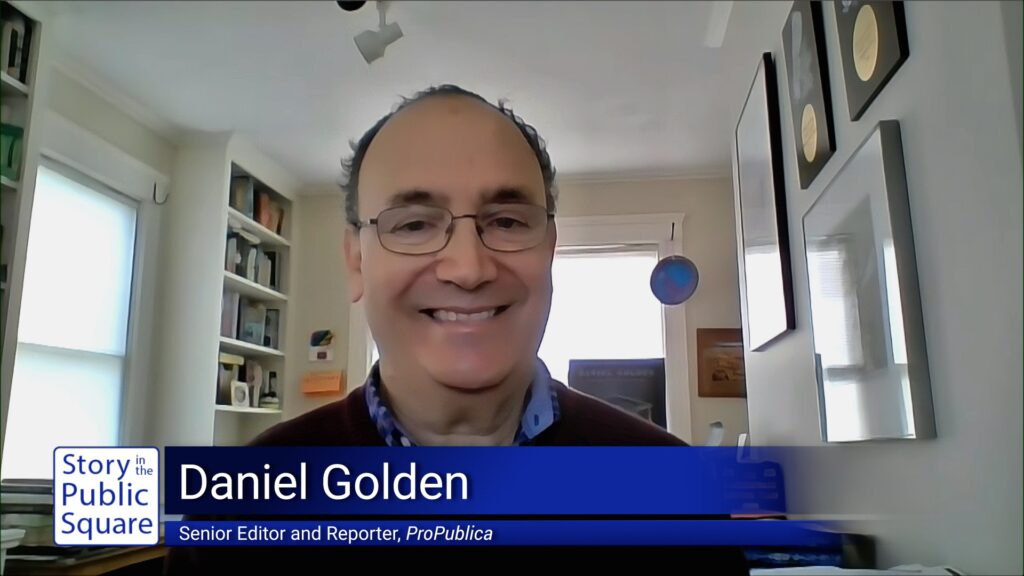Daniel Golden on Preserving Journalism’s Instrumental Role in our Democracy
Air Dates: January 8-14, 2024
There was a time in the United States—not that long ago, actually—when local newspapers played an undisputed positive role in holding people in authority to account. Daniel Golden is a journalist practicing his craft in that great tradition.
Golden is a Boston-based senior editor and reporter at ProPublica. He has been instrumental in three Pulitzer Prizes, two as an editor and one as a reporter. He co-edited a ProPublica series on Latin American asylum-seekers caught between the U.S. government and the MS-13 gang, which won the 2019 Pulitzer Prize for feature writing. Before joining ProPublica, he worked as managing editor for education and enterprise at Bloomberg News. There he edited a series about tax inversions—companies moving headquarters overseas to avoid taxes—that earned Bloomberg’s only Pulitzer Prize in 2015. Golden won a Pulitzer as a reporter for The Wall Street Journal in 2004 for a series of articles on preferences for children and donors in college admissions. He expanded that series into a critically acclaimed national bestseller, “The Price of Admission: How America’s Ruling Class Buys Its Way Into Elite Colleges—and Who Gets Left Outside the Gates.” An updated edition was published in October 2019 with new reporting on the Operation Varsity Blues scandal. He is co-author of “Spy Schools: How The CIA, FBI, and Foreign Intelligence Secretly Exploit America’s Universities,” with Renee Dudley. Golden spent 17 years as a staff reporter at the Boston Globe, including a stint on its Spotlight team, and served as senior editor for investigations at Conde Nast Portfolio. He has won three George Polk awards, three National Headliner awards, the Sigma Delta Chi award, the Gerald Loeb Award, among others.
On this episode of “Story in the Public Square,” Golden emphasizes the importance of journalism’s function in accountability. He says, “with less local coverage, people are much more naïve about government. The secret is that sometimes the government actually works pretty well. It’s not always awful. We investigative reporters focus on the bad parts, the abuses of power.” He adds, “when people don’t have those local papers covering the government, both in what they do well and what they do badly, and giving people a sophisticated sense of them, you really lose an awful lot.”
“Story in the Public Square” broadcasts each week on public television stations across the United States. A full listing of the national television distribution is available at this link. In Rhode Island and southeastern New England, the show is broadcast on Rhode Island PBS on Sundays at 11:00 a.m. and is rebroadcast Thursdays at 7:30 p.m. An audio version of the program airs Saturdays at 8:30 a.m. and 7:30 p.m. ET, Sundays at 4:30 a.m., 2:30 p.m., 9:30 p.m. ET on SiriusXM’s popular P.O.T.U.S. (Politics of the United States), channel 124. “Story in the Public Square” is a project of the Pell Center at Salve Regina University. The initiative aims to study, celebrate and tell stories that matter.

